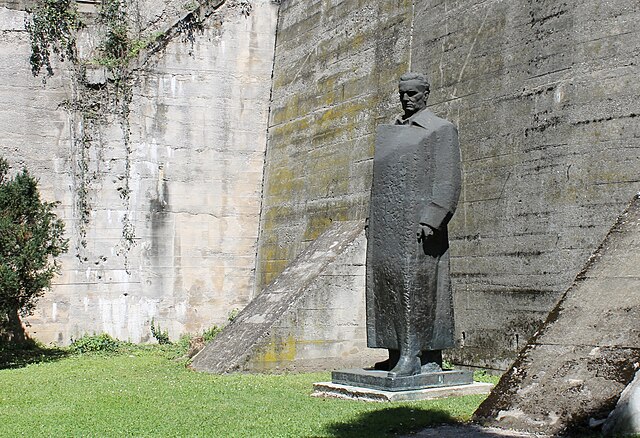The Struggle to Acknowledge Communist Legacy in Serbia

The issue of historical memory and remembrance of communist regimes has proven to be a challenge for the nations of the former communist east. But, certain countries have made significant progress in recent times. In post-communist nations such as Poland, Hungary, and Ukraine, the quest for reaching a societal level consensus on communist rule has found success. Institutions have been created to memorialize victims, government commissions were established to hold former communist officials accountable, and many citizens have reached the position that these regimes were repressive, criminal, and abusive of human rights and dignity. However, the same cannot be said about Serbia, a nation that still struggles to fully recognize the legacy and memory of communist repression.
Unlike many former Warsaw Pact nations, Serbia has not made serious efforts to come to terms with communist Yugoslavia’s impact. There has never been any major societal level reckoning with communism’s crimes against the Serbian people comparable to the efforts made by other countries. Across the country, communist iconography and statues remain, former communists held office without repercussion after 1990, and Josip Broz Tito is still viewed as an infallible leader by many. Even though such sentiments persist, we must remember that communist Yugoslavia was not the glamorized ideal that is propagated by some. In reality, it was a repressive regime that cared little for human rights or dignity.
Communist Yugoslavia practiced many of the cruelties other communist regimes practiced to an unseen level of excess at the time. A one-party state was established, free elections were dismantled, free speech eliminated, opposition crushed, and Tito quickly consolidated himself as a totally unchallengeable leader. In the first decade of Tito’s rule, terror occurred that placed the country as one of the most repressive in Europe. Between 1944 and 1953, tens of thousands of people were executed for opposition to the regime, led by dreaded security agencies like OZNA and UDBA. Like the USSR, Tito’s regime established work camps to imprison enemies, with the most notorious being the Goli Otok camp off the coast of Croatia. These numerous crimes are a tragedy in the history of the peninsula yet there are plenty of people today who still minimize or deny this tragedy to this day.
In the former Yugoslav republics, including Serbia, nostalgia and passive glorification of the old regime persists. In countless smaller towns and cities, old regime monuments and plaques can still be found. Coverage of repression is often absent from national museums and educational institutions. Left wing political parties tap into the memory of Yugoslavia to draw support. Most importantly, many citizens poll positively about the old communist system, holding strong nostalgia for those times for very clear reasons. After the Yugoslav Wars of the 1990s and the rough transition to multi-party democracy and free-market capitalism, many yearn for the tight order and stability that the communist dictatorship provided. They claim that the welfare system and social order justified the repression. Yet at the same time this supposedly wonderful system had no longevity as it quickly collapsed under its own failures and mismanagement in just under 45 years, opening the gate to war and suffering. This socialist dream led to a disastrous nightmare; a nightmare people try to cope with by holding nostalgia.
However, there have been efforts within the country to shed light on the old regime’s crimes and to demand justice for the victims. One of the most notable in recent times being Dr. Srdjan Cvetkovic from the University of Belgrade’s Institute for Contemporary History. In 2009, Dr. Cvetkovic led a commission under the Serbian Ministry of Justice to uncover and study mass graves of people executed by the communists. In his research, In the Name of the People! Political Repression in Serbia 1944-1953, the height of the terror in Yugoslavia, and arguably all of Europe, is documented with extensive evidence from government archives and archeological artifacts. The findings made and publicized drew controversy in Serbia and has pushed the question of communist legacy to the forefront of social discourse.
The struggle to provide justice and remembrance for the victims of communism in Serbia remains an arduous but important task. Recent efforts, such as the work of Dr. Cvetkovic and the commission have spurred interest of many Serbs, especially students. The people must learn and face this dark part of Serbian history and not ignore or romanticize it, a task that remains important not just within the present day, but for the future as well. Many Serbs see the nation’s path forward as a liberal democratic country within the EU that supports the rule of law, free elections, and human rights. If Serbian society wants to get on that path, then it must take the uncomfortable step of fully facing and recognizing these historical demons.
The Victims of Communism Memorial Foundation would like to offer special thanks to Dr. Srdjan Cvetkovic from the University of Belgrade’s Institute for Contemporary History for providing clarification on his research for this piece.
Stefan Mandić is a graduate of American University and currently serving as a Research Assistant at the Victims of Communism Memorial Foundation. The views and opinions expressed by the author do not necessarily reflect the opinions of the Victims of Communism Memorial Foundation.

